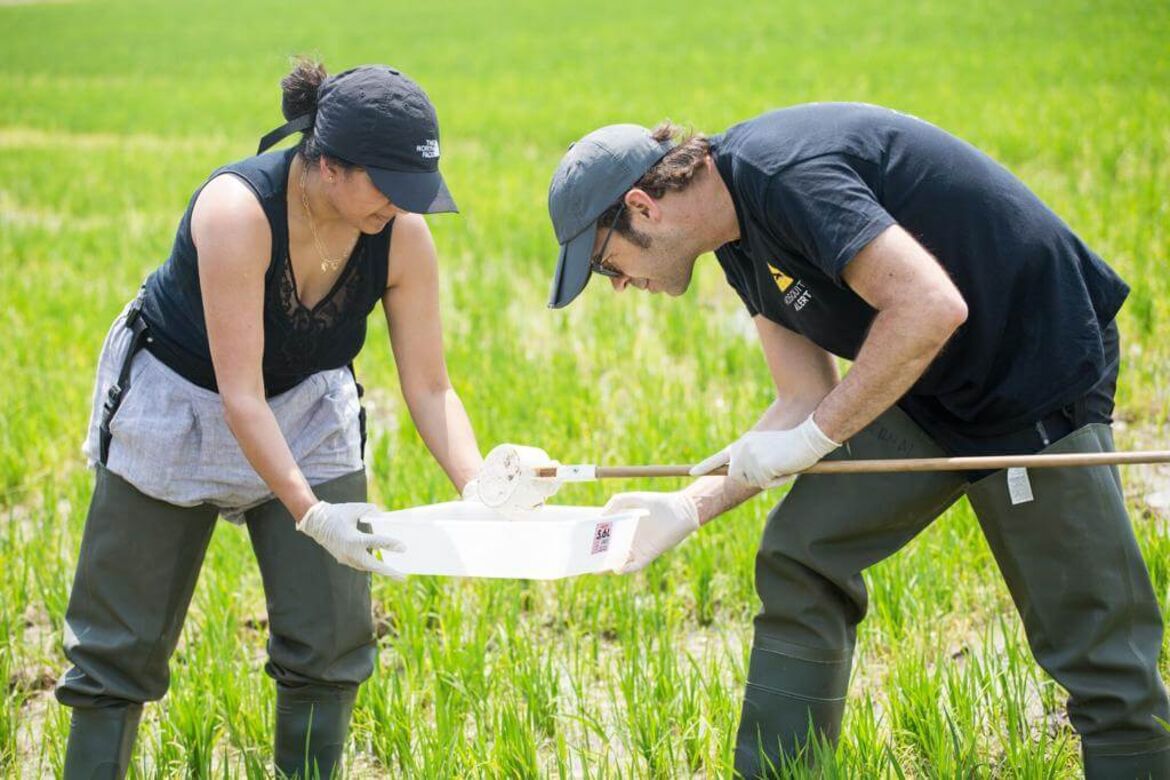-
Working Groups
- Climate Change and Health Intervention
- Climate Change, Nutrition and Health
- Climate Change, Migration and Health
- Heidelberg Planetary Health Hub (Hei-Planet)
- Climate-smart Health Systems
- Closing pandemic health gaps
- Design and implementation research in global health
- Digital Global Health
- Disease Control in Disadvantaged Populations
- Epidemiology and Biostatistics
- Epidemiology of Transition
- FAIR and ethical data and sample reuse
- Field Epidemiology Research in German Public Health
- Global Child Health
- Global Health and Economics Research Group
- Global Health Diagnostics
- Global Health Policies and Systems
- Health Economics and Health Financing
- Implementation research for prevention and disease control
- Injury Epidemiology and Prevention
- Mathematical Modelling of Infectious Diseases
- Non-communicable disease (NCD) in LMICs
- Non-Communicable Diseases (NCDs) Implementation Research
- Oral Health
- Planetary Child Health
- Science Communication
- Vector Borne Diseases and Geo Health
IDAlert – Infectious Disease decision-support tools and Alert system
WP5: Evaluating local interventions for resilience to zoonotic diseases

IDAlert is a Horizon Europe project designed to co-create innovative policy-relevant pan-European longitudinal indicators on climate-induced disease risks across hazard, exposure, and vulnerability domains where animals, human and the environment interface. The project focuses on sub-national Indicators that are disaggregated through an inequality lens and aims to generate tools to assess cost-benefit of climate change adaptation and mitigation measures across sectors and scales. We plan to co-create and prototype surveillance, early warning and response systems to increase health system resilience at regional and local levels, and to reduce socio-economic inequality. We employ multilevel engagement and utilize innovative methodologies, existing and new data streams and citizen science with knowledge generation and collection in selected hotspots in Bangladesh, Germany, Greece, the Netherlands, Spain and Sweden that are experiencing rapid urban transformation and heterogeneous climate-induced disease threats. The IDAlert team includes authorities in climate modelling, environmental economics, infectious disease epidemiology, the social sciences, One Health and EcoHealth. IDAlert‘s approach will ensure long-lasting impacts on EU climate policy while providing new evidence and tools for the European Green Deal to strengthen population health resilience to climate change.
The Heidelberg Institute of Global Health leads work package 5 (WP5): Evaluating local interventions for resilience to zoonotic diseases. WP5 aims to explore climate change mitigation policies in Europe and investigate the effects of specific infrastructural changes on mosquito abundance. We will use experimental and quasi-experimental study designs to explore these effects at five case study sites across Europe: Barcelona and Girona (Spain), Rotterdam (the Netherlands), Attica (Greece), and Heidelberg (Germany), focusing on mosquitoes that can transmit viruses such as dengue, zika, West Nile, and chikungunya. These studies will help to understand where to target disease prevention actions and to be informed when making future climate change mitigation policies. The project will also test messaging strategies for recruiting and motivating the general public to become citizen scientists and report mosquitoes in an app, which helps authorities track invasive species.
WP5 has four main tasks:
- Comprehensively assess case studies and understand policy processes and choices for selection of adaptation projects
- Conduct impact evaluations of two interventions in Barcelona: (i) a storm-drain replacement program, and (ii) larvicide treatment of storm drains on Ae. albopictus exposure risk
- Conduct impact evaluations of landscape transformations on vector and host populations that affect human health in Rotterdam and Girona
- Measure the effectiveness of nudging strategies on users of the mosquito control app to increase user retention
Project Lead
Aditi Bunker
Team Members
Pascale Stiles
Marina Treskova
Fiona Walsh
-
Working Groups
- Climate Change and Health Intervention
- Climate Change, Nutrition and Health
- Climate Change, Migration and Health
- Heidelberg Planetary Health Hub (Hei-Planet)
- Climate-smart Health Systems
- Closing pandemic health gaps
- Design and implementation research in global health
- Digital Global Health
- Disease Control in Disadvantaged Populations
- Epidemiology and Biostatistics
- Epidemiology of Transition
- FAIR and ethical data and sample reuse
- Field Epidemiology Research in German Public Health
- Global Child Health
- Global Health and Economics Research Group
- Global Health Diagnostics
- Global Health Policies and Systems
- Health Economics and Health Financing
- Implementation research for prevention and disease control
- Injury Epidemiology and Prevention
- Mathematical Modelling of Infectious Diseases
- Non-communicable disease (NCD) in LMICs
- Non-Communicable Diseases (NCDs) Implementation Research
- Oral Health
- Planetary Child Health
- Science Communication
- Vector Borne Diseases and Geo Health
